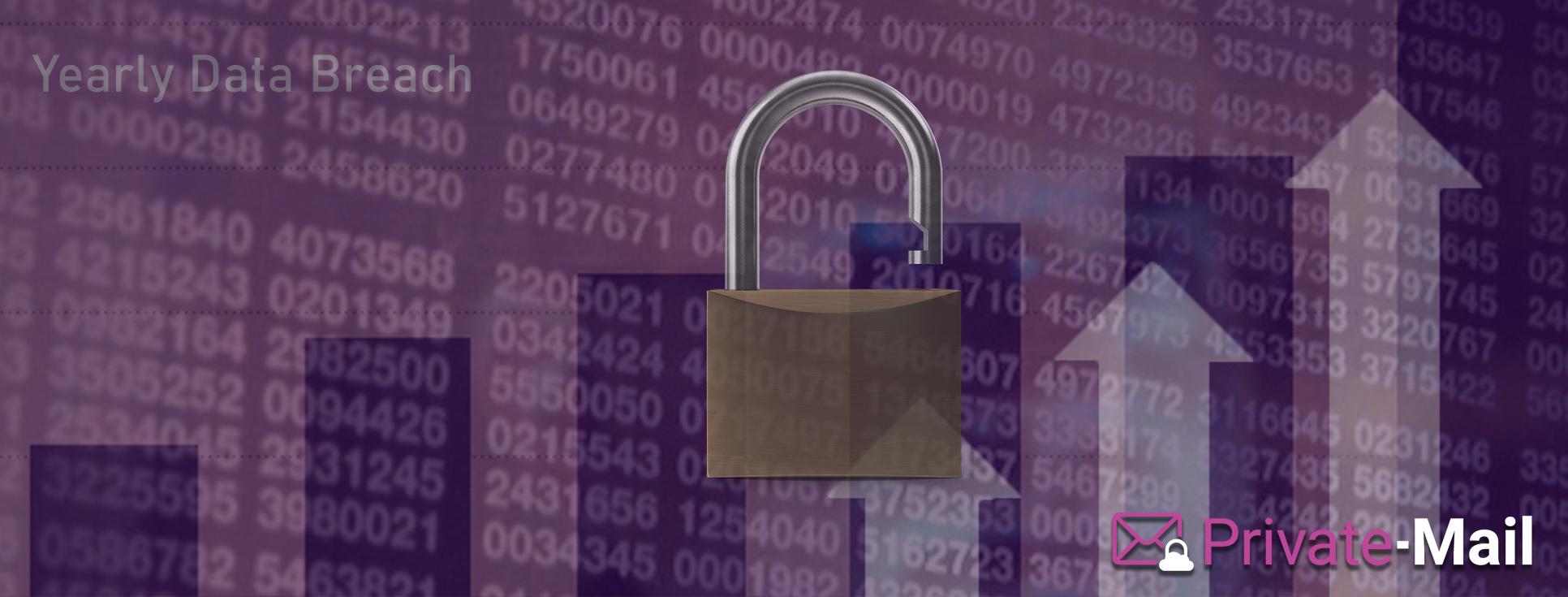
Data Breaches are on the Rise, Every Business Needs A Security Protocol
It seems like another company faces a data breach every day. While larger businesses are often the bigger targets, usually because they carry so much information valuable to thieves, no business is safe. Smaller businesses are less likely to use high security standards to protect their data, mistakenly believing that they aren’t a threat. If small businesses are easy to infiltrate, a hacker can steal data from several of them every day in order to create a cumulatively high volume theft.
Every business of every size needs a security protocol, and there’s never such thing as being too safe with your data. It only takes one breach to sink the whole ship, and you can’t afford to gamble with the safety of your customers or the future of your business.
Data Breach Statistics
In the year 2016, 36.6 million private files were exposed in data breaches. In 2018, 446.5 million files were exposed the same way. Exponential amounts of data are leaking, and attackers are becoming more adept at taking down their targets. Many businesses become stuck in an antiquated mindset when it comes to security, and attackers are miles ahead of them.
The average data breach costs a company nearly $4 million to fix, not to include companies ordered to pay out settlements to people whose confidential information was exposed during that data breach. These funds are often substantially more. Yahoo, for example, was ordered to pay out over $11 million to a settlement fund for people affected by their massive data breach several years back. Equifax was ordered to pay up to $700 million to compensate victims of its massive hack.
Data breaches are expensive logistical nightmares and legal labyrinths for companies of all sizes. The larger the business, the higher the price there is to pay when all is said and done.
How Do Businesses Recover After Data Breaches?
Many businesses don’t recover after data breaches. Roughly 60% of small businesses that face a data breach will close within the 6 months following the attack. They don’t have the money to right the wrongs or rebuild their reputation within their communities. Some larger businesses have to file bankruptcy to settle the costs associated with data breaches. If they do survive, they have a hard road ahead of them.
Trust is a huge factor in the recovery effort. These people entrusted you with so much data, and they feel as though you haphazardly guarded it. It can be difficult to convince old customers to come back or new customers to join after everyone has heard about what happened.
How Can Businesses Prevent Data Breaches?
Preventing data breaches should be an ongoing concern for every business. Security is not one and done – it’s ever evolving and needs to be stepped up on a constant basis. It starts with having strong password policies for employees and regular password changes. Have clear expectations for what can and can’t be shared with others, including a social media policy. If you don’t have a secure method for allowing employees to work remotely, forbid remote work. Structure access to data within the company – a receptionist wouldn’t need access to corporate level information. Make sure everyone’s permissions are granted appropriately.
All antivirus and anti-malware software needs to be updated as soon as those updates become available – don’t allow employees to click “remind me later” because they’re worried that updates will impact their productivity and workflow.
The last and most important part of preventing data breaches is cybersecurity.
Conclusion: Use a VPN and Encrypted Email
A VPN service and an encrypted email service are crucial for protecting your company’s data. A business VPN solution will keep all traffic on your business network completely private. A potential attacker won’t be able to see what’s being access, stored, or transmitted on a business network that’s been secured with a quality VPN.
Encrypted email prevents malicious attachments and phishing schemes from reaching employees. It also keeps all documents sent from one person to another completely secure. Encrypted email with encrypted cloud storage makes it safe to send things like customer information or business financial data via email without fear of repercussion.
TorGuard VPN and PrivateMail are just what your business needs. You can’t afford a data breach, but you can afford reliable VPN and private email services to keep your business secure and safe from digital thieves.







